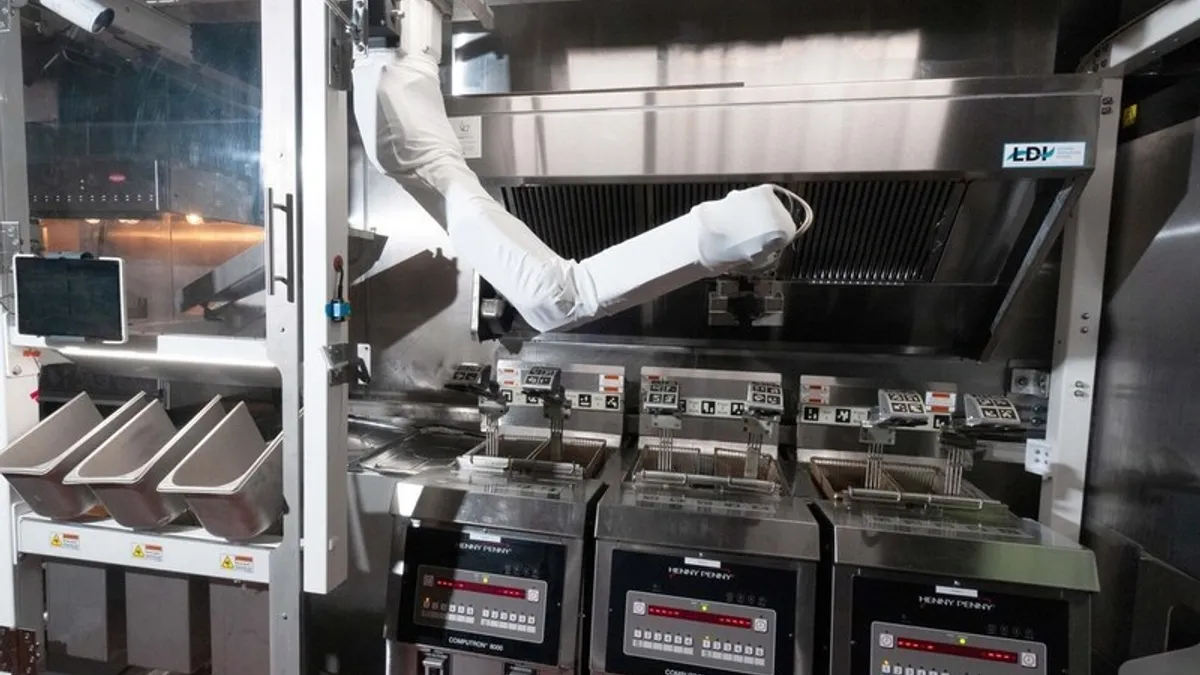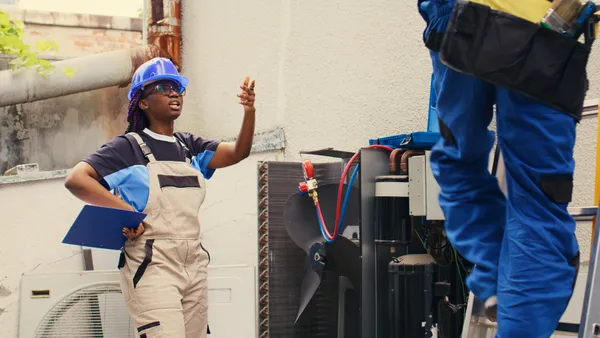Dive Brief:
- White Castle will deploy robot Flippy 2 at 100 more of its 350 restaurants as part of the burger chain's existing partnership with Miso Robotics, which began in 2020, the companies announced Tuesday
- The kitchen robot takes over the work of a whole fry station, taking pressure off of back-of-house labor. Miso Robotics has said in Securities and Exchange Commission documents, however, that the robot won't be a job replacement and can actually create new jobs including "chef techs" who are trained to manage the robot.
- White Castle is one of many restaurant chains exploring automation in a bid to ease labor shortage issues and retain talent by making existing processes more efficient.
Dive Insight:
White Castle's rollout of Flippy 2 is one of the largest deployments of robot kitchen tools to date. The burger chain didn't specify how long it takes to install the labor-saving technology at a restaurant, but said the entire process would take place in regional phases and last years.
White Castle began testing Flippy at a single restaurant in 2020 before expanding the product to 10 additional units last year. The robot has sparked "an immediate positive impact on daily operations and the productivity of its team members," per a company release.
Miso has consistently argued its robots, which include versions of Flippy optimized for cooking wings as well as burgers, aren't a substitute for restaurant labor, but instead allows workers to perform other tasks while avoiding more difficult operations. Miso's systems also use artificial intelligence to refine the robot's performance over time.
"The tasks that Miso's technology can perform are some of the most dangerous tasks in the kitchen, not to mention messy and menial, ultimately improving the employee experience by freeing up time for them to focus on more meaningful work," Miso argued in a Series E Offerings Circular filed with the SEC on Feb. 4, 2022.
Misco also claims in that same filing, however, that Flippy 2 and other robots would save QSRs money on wages for cooks.
"Cooks specifically account for 60% of the total wage expense for a restaurant. Miso Robotics' automation solution can help increase the throughput and efficiency of these cooks, bringing down this majority expense and increasing their profitability in the kitchen," Miso said in the filing.
Buffalo Wild Wings is currently testing Miso's Flippy Wings product at a few locations, including Inspire Brands' ghost kitchen, called Alliance Kitchen. Miso claims the robot drives a 10% to 20% jump in food production speed.
While a small, but growing number of tech companies are working on kitchen automations, other restaurant tech companies, like Crunchtime and 7shifts, have focused on integrating POS, inventory and management systems to save time and labor.
Restaurants are also experimenting beyond back-of-house robotics to save on labor and improve speed of service, including by deploying AI-assisted drive-thrus or robotic delivery fleets. Fifty percent of restaurant operators plan to deploy some sort of automation technology in the next few years, according to data from Lightspeed.














